Discover Proper Nutrition and Diet for Your Yellow Cockatiel
Uncover the secrets of a balanced Yellow Cockatiel diet, from fortified pellets and seeds to fresh fruits and veggies in order to keep it healthy!

Key Takeaways:
- Understanding the specific dietary needs of yellow cockatiels is crucial for their health and longevity.
- A balanced diet for a yellow cockatiel includes a mix of seeds, pellets, fruits, vegetables, and occasional protein sources.
- Regular monitoring and adjustments to the diet can prevent nutritional deficiencies and obesity.
Cockatiels, with their charming personalities and striking features, have soared in popularity as pets. Among them, the yellow cockatiel, particularly the gorgeous lutino cockatiel, stands out with its bright yellow feathers and red eyes. As a proud owner of a lutino cockatiel or any of its color mutations, such as the cinnamon cockatiel or the female pearl cockatiel, it's essential to provide them with proper nutrition to maintain their vibrant plumage and overall health.
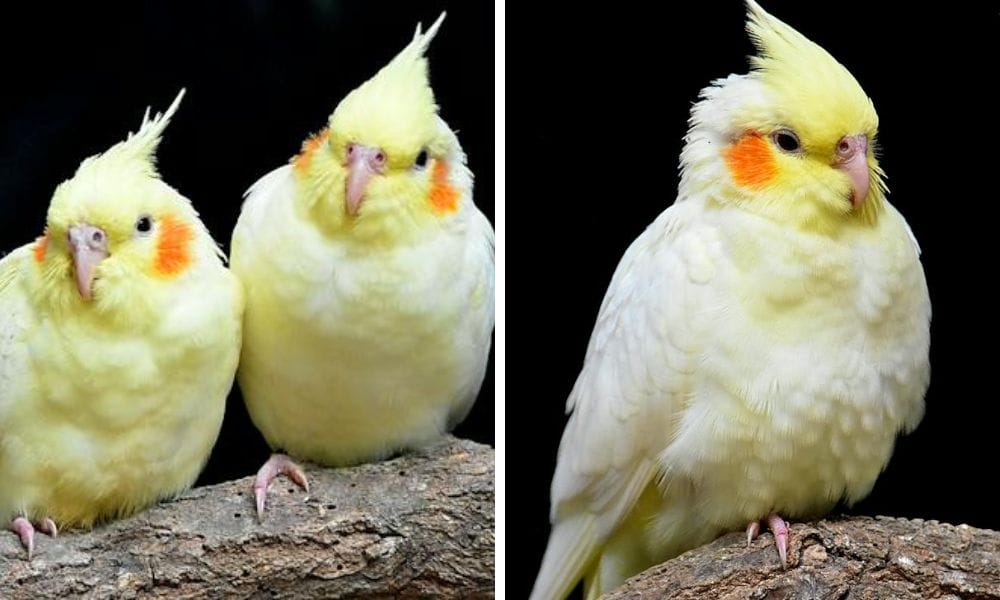
The Basics of a Balanced Cockatiel Diet
Yellow cockatiels, like other birds in the parrot family, require a varied diet to meet their nutritional needs. While the normal grey cockatiel and the lutino gene variant share similar dietary requirements, the lutino's primarily grey counterparts with bright orange cheek patches may have slightly different needs due to their unique metabolism. A balanced diet for these pet birds should include high-quality seeds, pellets formulated for cockatiels, fresh fruits, and vegetables.
Seeds vs. Pellets: What's Best for Your Bird?
Seeds have long been the traditional food for pet birds, but they can lead to health issues if not properly balanced with other foods. Pellets, on the other hand, are designed to provide a more complete nutritional profile. For your lutino cockatiel, a diet consisting of about 60-70% pellets and 30-40% seeds is recommended. This ensures that your bird gets the necessary vitamins and minerals without the risk of vitamin A deficiency or obesity, common in seed-only diets.
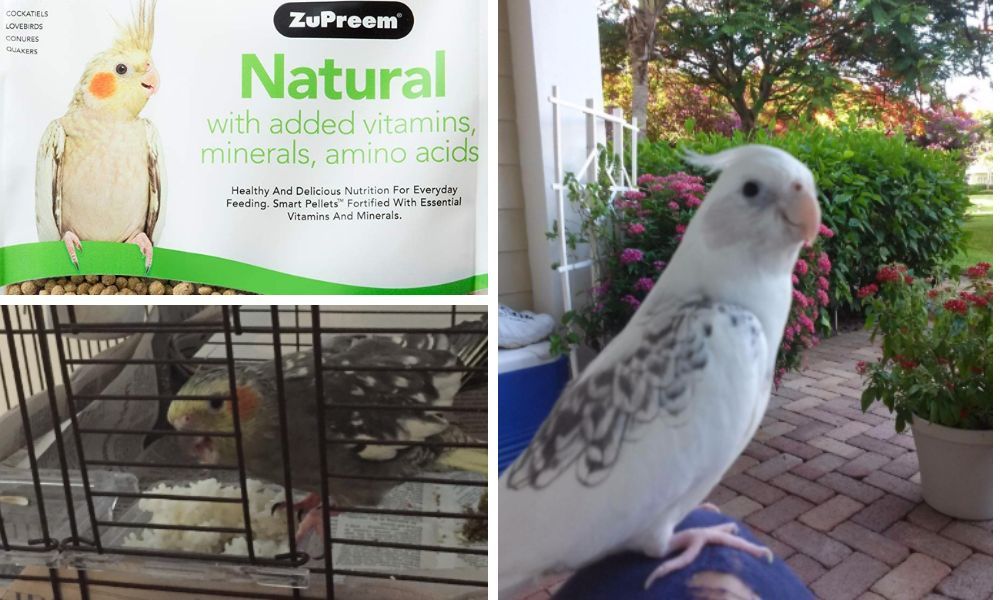
The Importance of Fruits and Vegetables
Incorporating fruits and vegetables into your yellow cockatiel's diet is vital. These foods offer essential nutrients that pellets and seeds might lack. Suitable options include dark leafy greens, carrots, and apples, all of which should be thoroughly washed to remove any pesticides. Remember to remove any uneaten fruits and vegetables from the bird cage within a few hours to prevent spoilage.
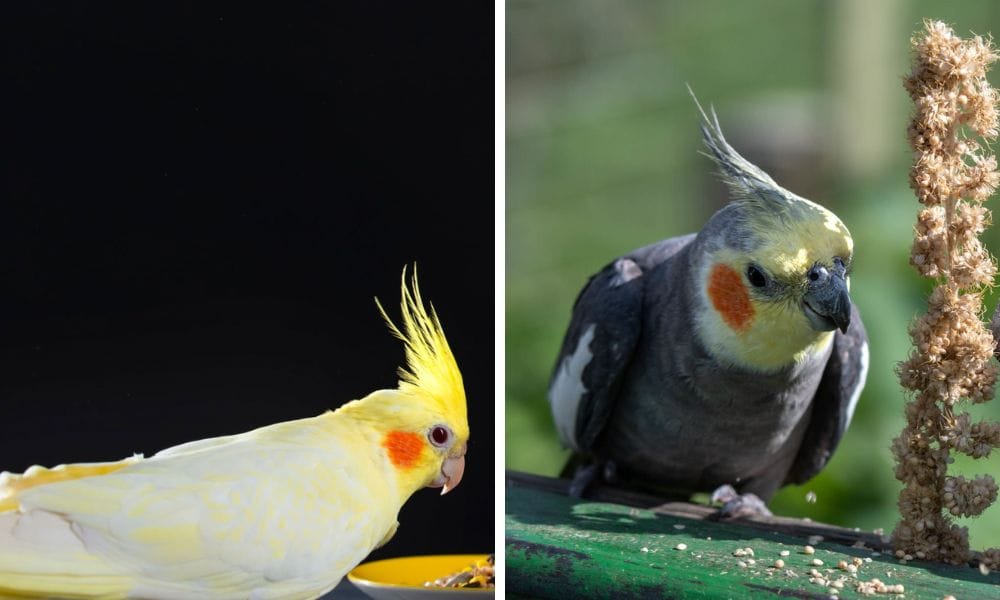
Protein: A Necessary Addition
While cockatiels primarily feed on seeds and plants in the wild, they also consume insects, providing them with protein. In captivity, you can mimic this by offering your yellow cockatiel occasional cooked eggs or lean meats. This should be done sparingly, as too much protein can lead to kidney issues.
Foods to Avoid
Certain foods are toxic to cockatiels and should be avoided entirely. These include avocado, chocolate, and caffeine, which can be lethal to your bird. Also, refrain from giving your cockatiel foods high in fat, salt, or sugar.
Hydration: Water Is Essential
Fresh, clean water should be available to your yellow cockatiel at all times. Water not only aids in digestion but also helps regulate body temperature and is crucial for overall health. Change the water daily to prevent bacterial growth.
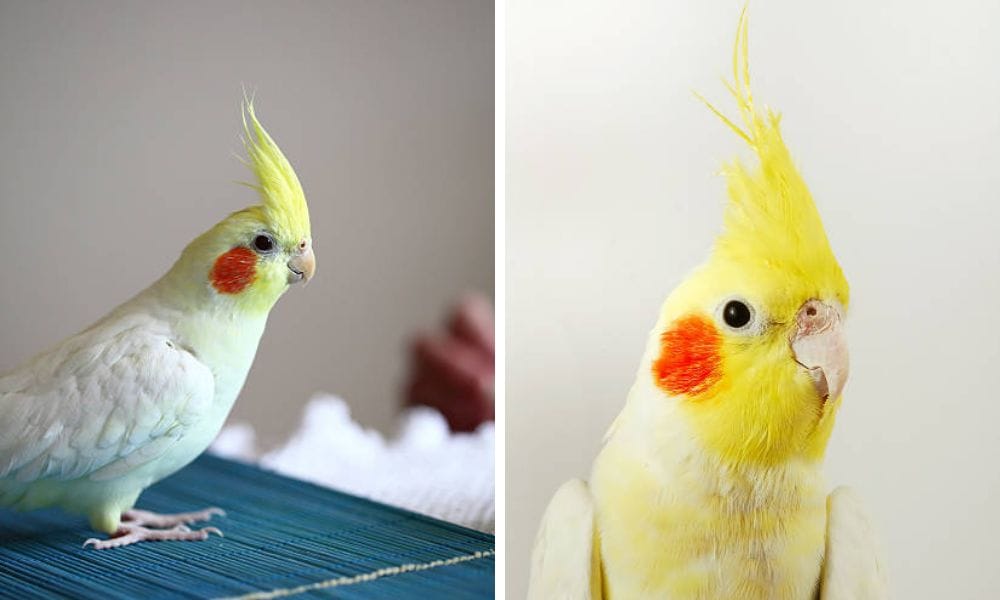
Supplements: Are They Necessary?
If your yellow cockatiel's diet is well-rounded, supplements are generally not needed. However, in some cases, such as during breeding or illness, your avian vet may recommend specific supplements. Always consult with a professional before adding any supplements to your bird's diet.
Monitoring Your Cockatiel's Diet
Regularly observing your cockatiel's eating habits and weight can help you catch any dietary issues early on. A sudden change in appetite or weight could indicate a health problem that requires veterinary attention.
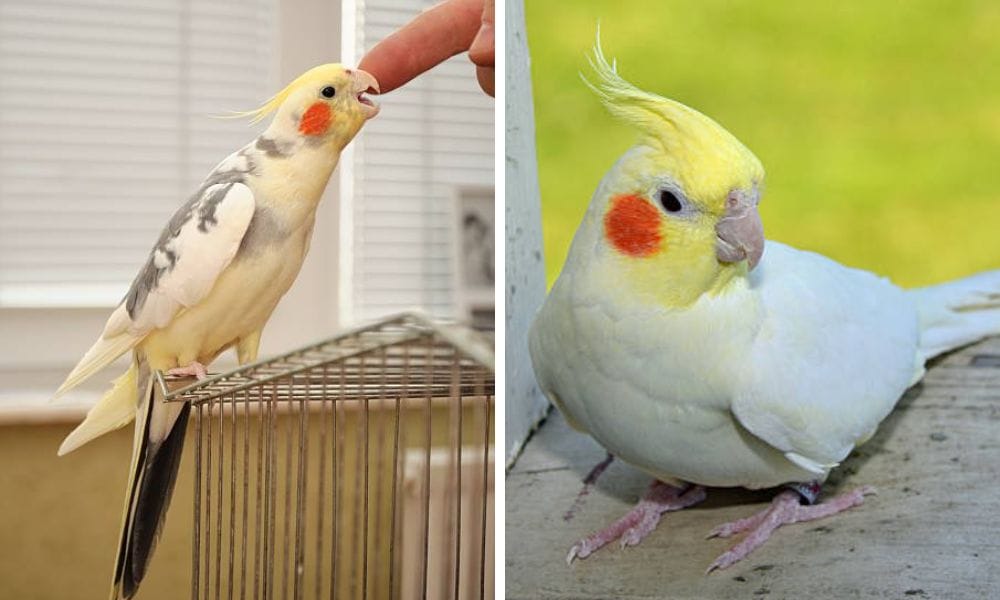
Understanding the Unique Features of Male Lutino Cockatiels
Male lutino cockatiels are a sight to behold with their striking white to light yellow plumage and the characteristic orange cheek patch that sets them apart. These birds, part of the cockatoo family, exhibit a yellowish tint that is especially vibrant on their head and crest. The lutino mutation results in the absence of melanin, which gives them their bright, eye-catching coloration. In the aviculture world, these birds are not only admired for their beauty but also for their friendly and sociable nature, making them popular pets.
The male cockatiel's plumage can vary slightly among individuals, with some showcasing a more pronounced yellow face or even prominent white flashes on the outer edges of their tail feathers. It's fascinating to note that the lutino pearl variety adds a layer of complexity to their appearance, featuring a pattern that resembles pearls across their back and wings. Observing these nuances in a male lutino cockatiel's feathers can be an enjoyable aspect for enthusiasts and breeders alike, as they navigate the diverse genetic expressions within this breed.
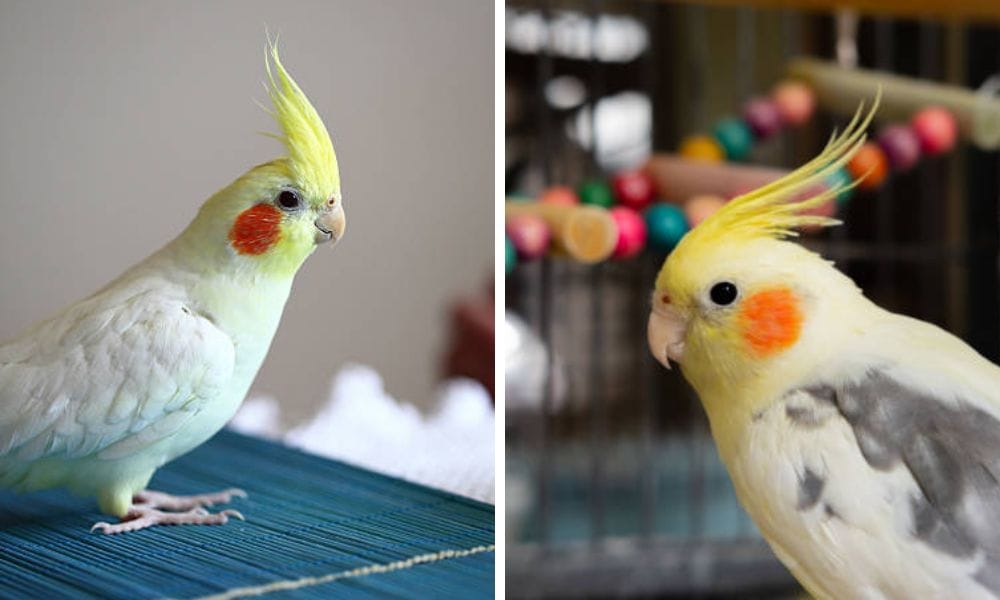
The Social and Vocal Dynamics of Cockatiels in Captivity
Talk cockatiels are a delight to many owners, and male lutino cockatiels are no exception. These birds are known for their ability to mimic sounds and, with patience and training, can learn to replicate words and phrases. The social interaction they receive in environments like the Florida Parrot Jungle showcases their vocal abilities and how they use them to engage with their human caretakers and fellow birds. The male cockatiel, in particular, may use its vocalizations as a way to assert dominance or attract a mate, displaying a wide range of chirps, whistles, and even songs.
In captivity, the social aspect of feeding plays a significant role in a cockatiel's life. Sharing meals can strengthen the bond between bird and owner, and observing a cockatiel's eating behaviors can provide insight into its well-being. A healthy male lutino cockatiel, with its vibrant yellow crest and playful demeanor, will often show enthusiasm during mealtime, signaling that it is content and well-nourished. This interaction is not only crucial for their diet but also for their overall social and emotional health, reinforcing the importance of understanding and catering to their complex needs.
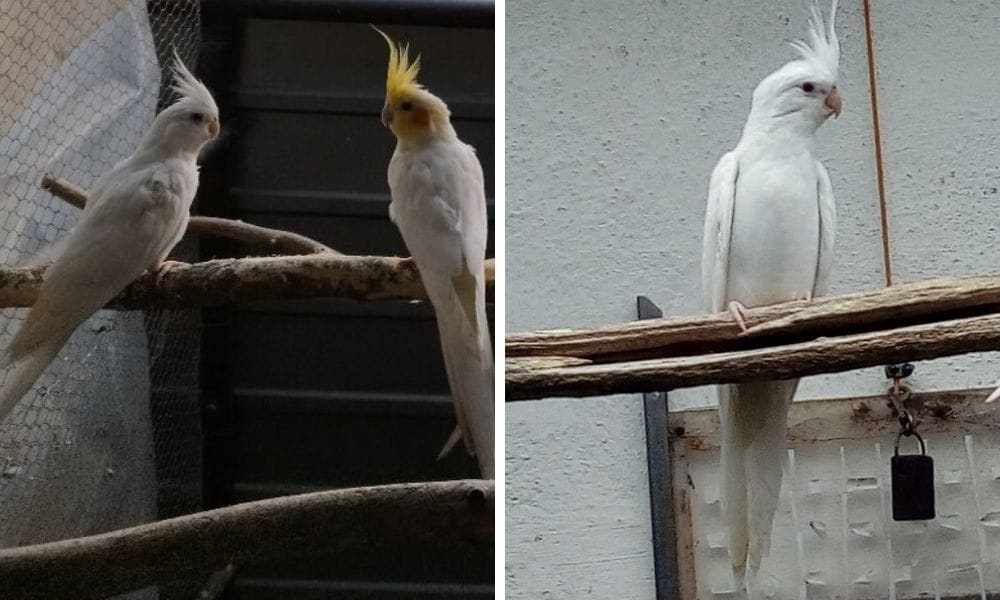
The Role of Exercise in Diet
Exercise is an important factor in your cockatiel's health. Ensure your bird has enough space to fly in the bird cage and engage in playtime outside the cage under supervision. This helps prevent obesity and stimulates mental health.
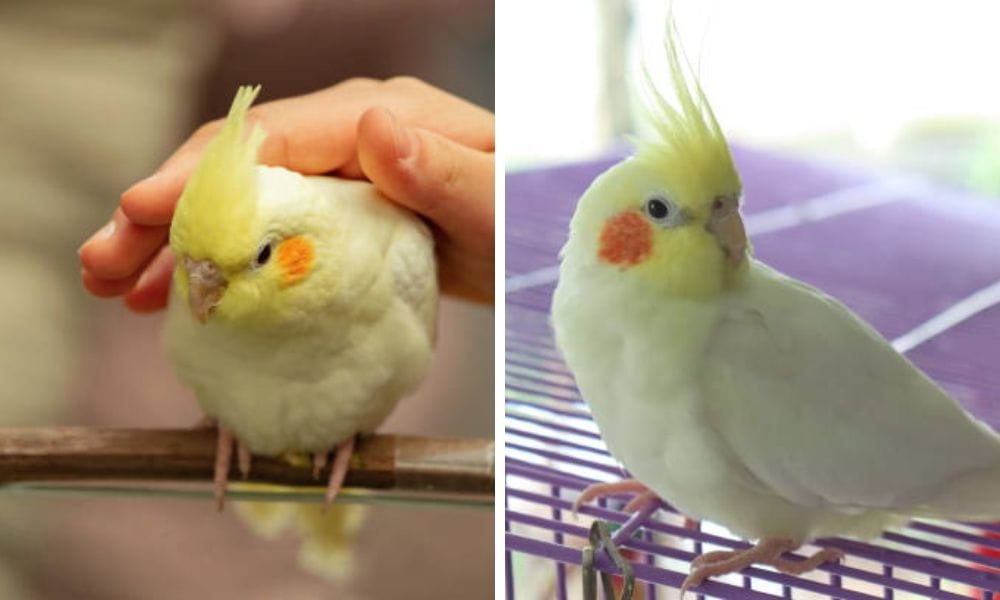
Understanding Cockatiel Eating Behaviors
Cockatiels can be picky eaters, so introducing new foods may take time and patience. Offer new foods in small amounts and alongside familiar favorites to encourage your bird to try them.
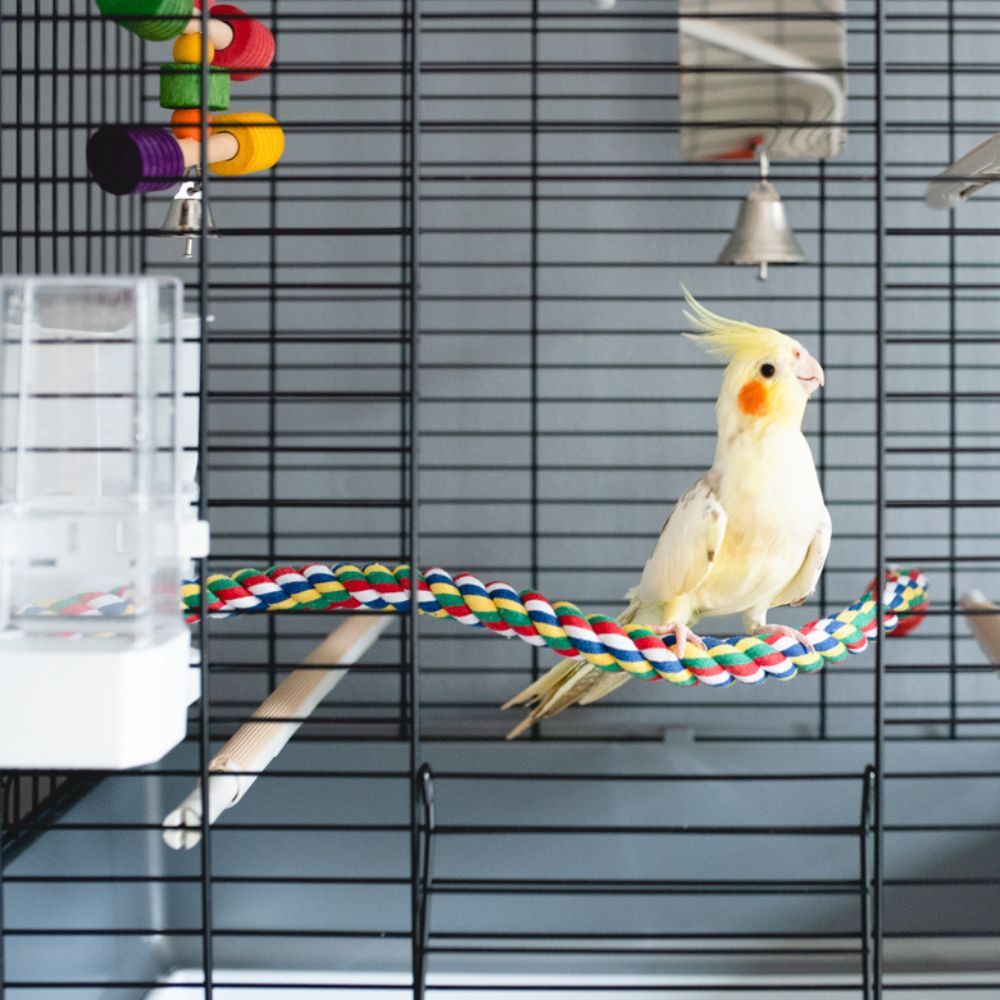
Special Considerations for Breeding Cockatiels
Breeding cockatiels have increased nutritional needs. If you have a nest box set up for a breeding pair, ensure they have access to a variety of foods and consider adding a calcium supplement to support egg-laying.
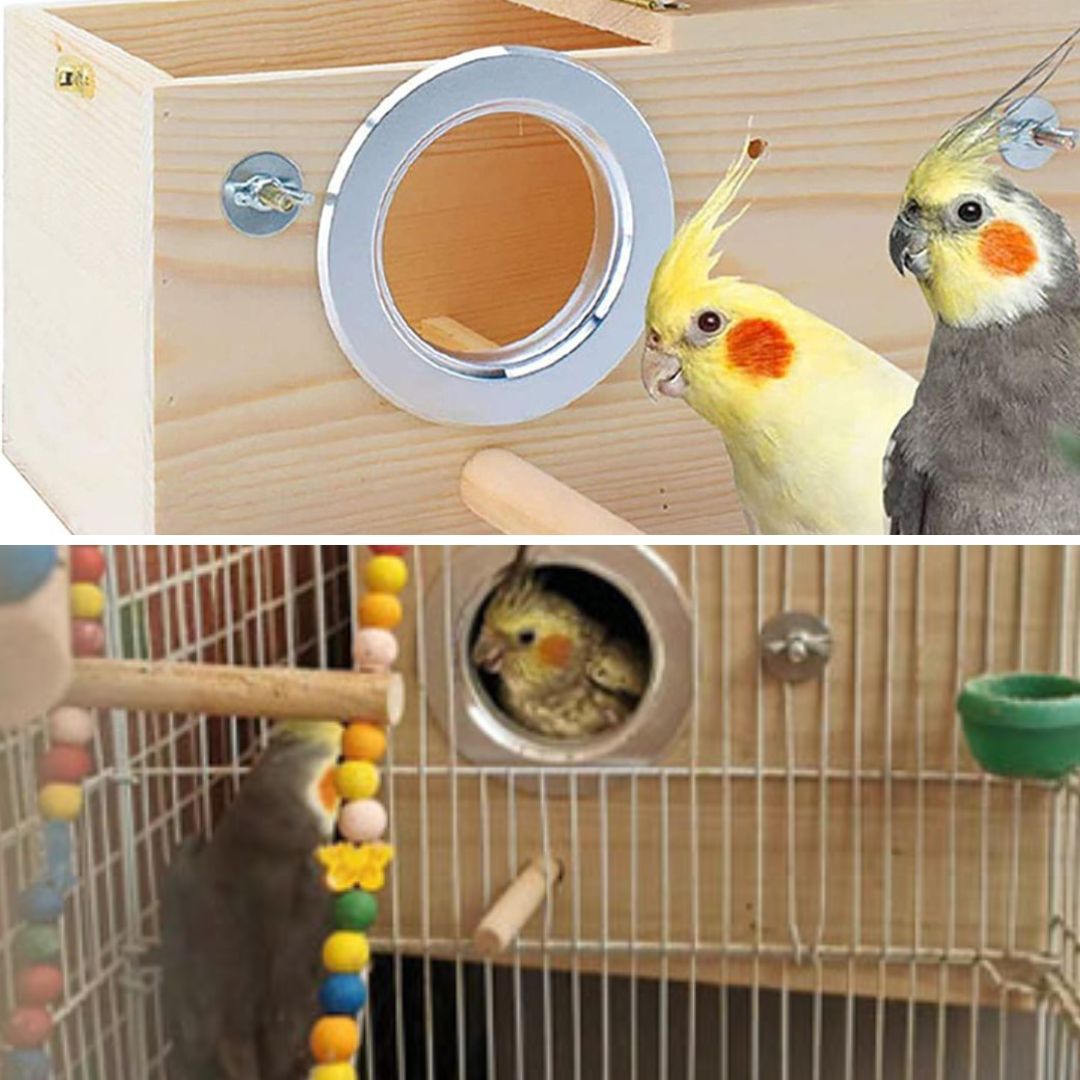
Recognizing Signs of Nutritional Deficiencies
Signs of nutritional deficiencies in cockatiels can include feather plucking, lethargy, and changes in droppings. If you notice any of these signs, consult with an avian veterinarian to address the issue promptly.
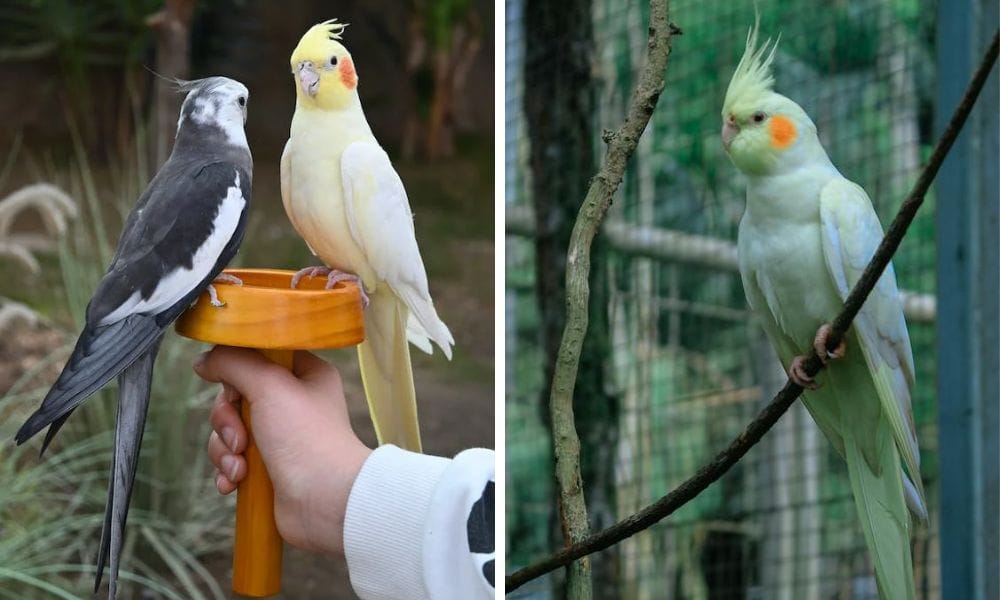
Transitioning to a New Diet
If you need to change your yellow cockatiel's diet, do so gradually. Sudden changes can cause stress and digestive issues. Mix new foods with the old and slowly increase the proportion over time.
The Social Aspect of Feeding
Cockatiels are social creatures and may enjoy eating with their flock. If you have male and female cockatiels or a second cockatiel mutation, consider feeding them together to encourage a communal dining experience.
Seasonal Adjustments to Diet
Just as wild cockatiels' diets change with the seasons, you can adjust your pet's diet to reflect seasonal availability of fruits and vegetables. This not only provides variety but also ensures a range of nutrients throughout the year.
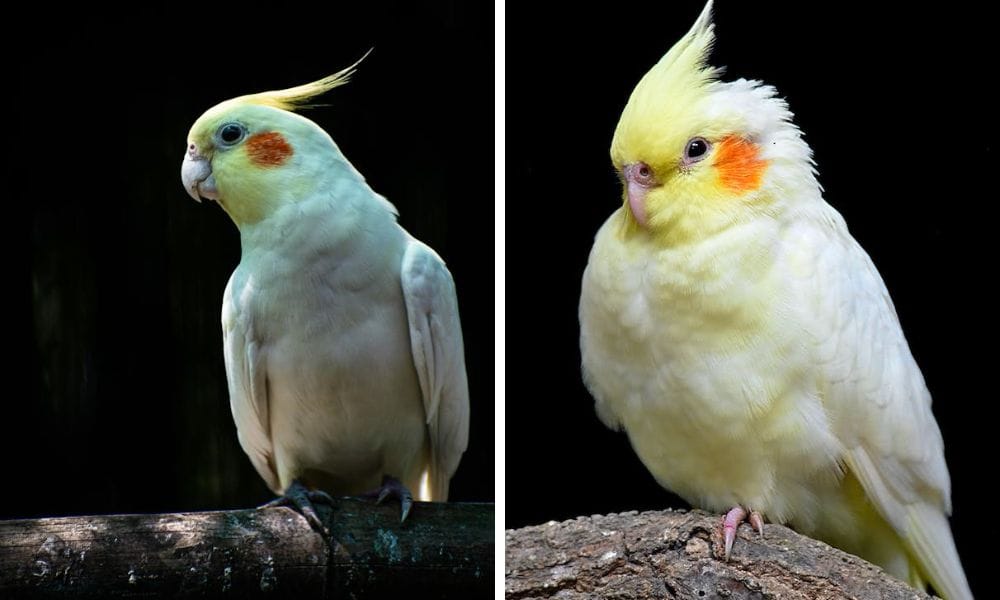
The Longevity of Your Yellow Cockatiel
A proper diet is key to the longevity and health of your yellow cockatiel. By providing a balanced diet and monitoring your bird's health, you can enjoy many years with your beautiful pet bird.
Summary
Proper nutrition is essential for maintaining the health and vibrancy of your yellow cockatiel. A balanced diet consisting of pellets, seeds, fruits, vegetables, and occasional protein, along with fresh water, is crucial. Monitoring your bird's diet and weight, providing exercise, and understanding their eating behaviors can help prevent nutritional deficiencies and obesity. Always consult with an avian vet for personalized advice, especially when it comes to dietary changes or supplements.
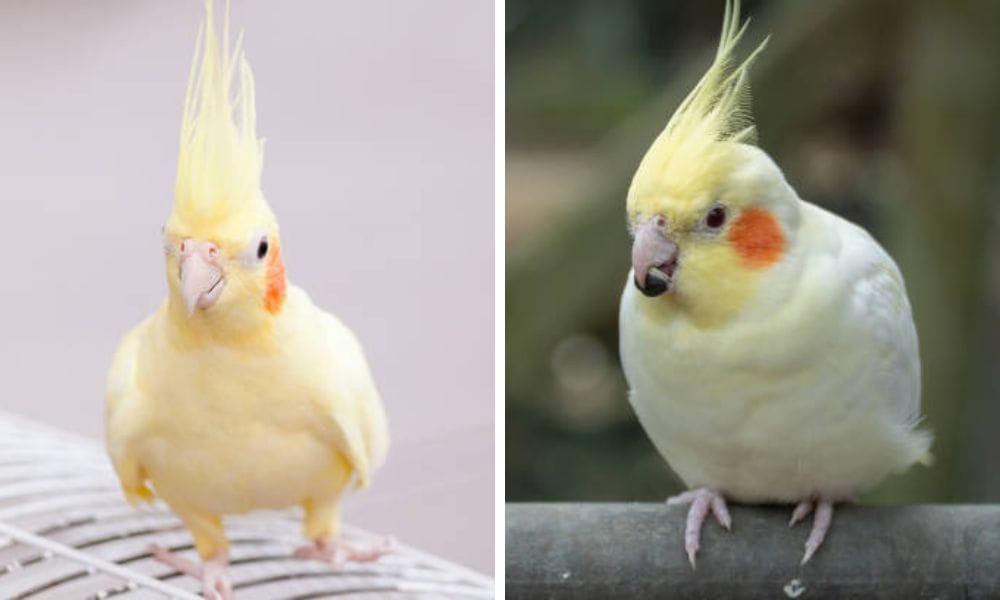
FAQ Section
Q: How often should I feed my yellow cockatiel fruits and vegetables? A: Fruits and vegetables should be a daily part of your yellow cockatiel's diet, making up about 20-25% of their overall food intake.
Q: Can yellow cockatiels eat the same foods as other parrots? A: While there are many similarities in the diets of cockatiels and other parrots, it's important to tailor the diet to the specific needs of your yellow cockatiel, considering factors like size and metabolism.
Q: What are the signs that my cockatiel is not getting a proper diet? A: Signs of an improper diet in cockatiels can include dull or plucked feathers, lethargy, changes in droppings, or a lack of appetite. If you notice any of these signs, consult with an avian veterinarian.

